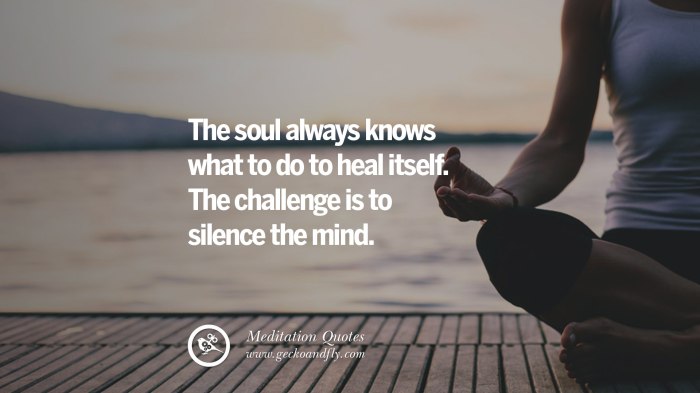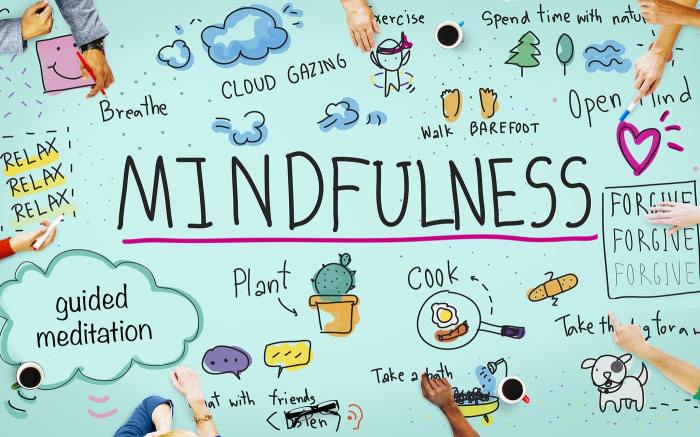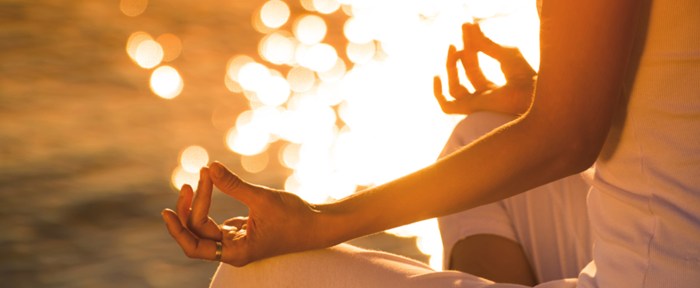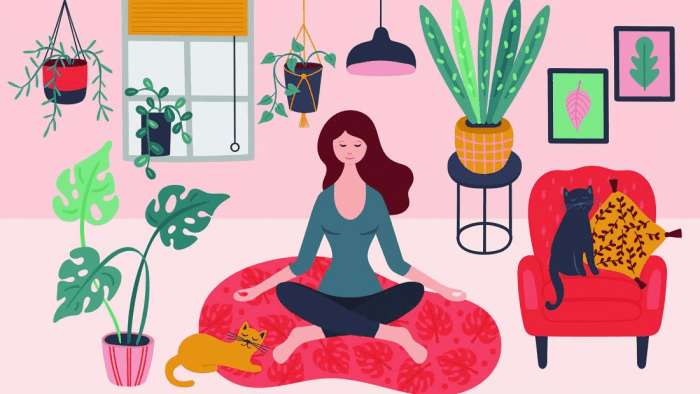How to Meditate for Becoming More Mindful in Everyday Life sets the stage for this enthralling narrative, offering readers a glimpse into a story that is rich in detail with informal but serious style and brimming with originality from the outset.
Embark on a journey towards heightened mindfulness through the practice of meditation. Learn how to cultivate awareness in your daily life with simple yet powerful techniques.
Introduction to Meditation for Mindfulness: How To Meditate For Becoming More Mindful In Everyday Life

In today’s fast-paced world, the concept of mindfulness has gained increasing recognition as a powerful tool for enhancing mental well-being. Mindfulness can be described as the practice of bringing one’s attention to the present moment without judgment. It involves being fully aware of your thoughts, feelings, bodily sensations, and the surrounding environment.Meditation serves as a key practice for cultivating mindfulness in everyday life.
Feeling stressed and need a quick relaxation break? Try this 5-Minute Meditation for Relaxation to calm your mind and body in just a few minutes. It’s a great way to unwind!
By engaging in meditation regularly, individuals can train their minds to focus on the present moment and develop a deeper awareness of their thoughts and emotions. This heightened sense of awareness can lead to a greater sense of calm, clarity, and overall well-being.
Are you wondering when is the best time of day to meditate? Check out these 10 Tips to find the perfect moment for your meditation practice.
How Meditation Enhances Mindfulness, How to Meditate for Becoming More Mindful in Everyday Life
- Meditation helps individuals to develop a non-judgmental awareness of their thoughts and emotions.
- Through meditation, individuals learn to observe their thoughts without getting caught up in them, leading to greater emotional resilience.
- Regular meditation practice can help individuals become more attuned to their bodily sensations and the present moment.
Benefits of Mindfulness for Mental Well-being
- Mindfulness can reduce stress and anxiety by promoting a sense of calm and relaxation.
- Practicing mindfulness can improve focus and concentration, leading to enhanced productivity.
- By cultivating mindfulness, individuals can develop a healthier relationship with their thoughts and emotions, leading to greater emotional stability.
Getting Started with Meditation

When beginning your meditation journey, it is essential to start with simple techniques that are suitable for beginners. The key is to find a quiet and comfortable space where you can focus and relax.
Various Meditation Techniques for Beginners
There are several meditation techniques that are perfect for beginners:
- Guided Meditation: Listening to a recorded meditation that guides you through the process can be helpful for beginners.
- Mantra Meditation: Repeating a mantra or phrase can help focus the mind and create a sense of calm.
- Body Scan Meditation: This technique involves focusing on different parts of the body, promoting relaxation and mindfulness.
- Breath Awareness Meditation: Paying attention to the breath can help calm the mind and improve focus.
The Importance of a Quiet and Comfortable Space
Creating a peaceful environment for meditation is crucial for a successful practice. Find a quiet space where you won’t be disturbed, and make sure it is comfortable and free from distractions.
Need some motivation and inspiration in your life? Learn how to meditate effectively with this helpful guide on Meditating for Motivation and Inspiration. You’ll be ready to conquer the day!
The Role of Breathing Exercises
One of the fundamental aspects of meditation is the focus on the breath. Breathing exercises can help calm the mind, reduce stress, and increase mindfulness. Practice deep breathing techniques to center yourself and enhance your meditation experience.
Incorporating Meditation into Daily Routine

To make meditation a part of your daily routine, it is essential to prioritize it just like any other important task in your schedule. By setting aside dedicated time for meditation, you can experience the numerous benefits of mindfulness in your everyday life.
Making Time for Meditation in a Busy Schedule
- Start by identifying pockets of time in your day when you can meditate, such as early morning before starting your day, during a lunch break, or in the evening before bed.
- Consider incorporating short meditation sessions, even if it’s just for a few minutes, to make it more manageable and achievable.
- Avoid multitasking during meditation time and focus solely on your practice to fully reap the benefits.
Benefits of Setting a Consistent Meditation Routine
- Consistency in meditation helps in establishing a habit, making it easier to stick to your practice in the long run.
- Regular meditation can improve focus, reduce stress, enhance self-awareness, and promote emotional well-being.
- By meditating at the same time and place each day, you create a sense of ritual and stability that can deepen your practice.
Creating a Calming Atmosphere for Meditation at Home
- Designate a quiet and clutter-free space in your home for meditation, where you feel comfortable and at ease.
- Add elements like candles, incense, or calming music to enhance the ambiance and promote relaxation during meditation.
- Consider incorporating natural elements like plants or a window with a view to connect with nature and create a soothing environment.
Deepening Mindfulness Through Meditation

When it comes to deepening mindfulness through meditation, it’s important to understand the powerful connection between the two. Meditation is a practice that cultivates self-awareness by bringing attention to the present moment, allowing individuals to observe their thoughts and emotions without judgment. This heightened awareness can lead to a deeper understanding of oneself and one’s surroundings.
Increased Self-Awareness through Meditation
Meditation offers a way to explore the inner workings of the mind, helping individuals become more attuned to their thoughts, feelings, and sensations. By regularly practicing meditation, individuals can develop a greater sense of self-awareness, allowing them to recognize patterns of behavior and thought that may have previously gone unnoticed.
Managing Stress and Anxiety with Meditation
-
Mindfulness meditation can help individuals manage stress and anxiety by promoting relaxation and reducing the body’s stress response. By focusing on the present moment, individuals can break free from the cycle of worrying about the future or ruminating on the past.
-
Practicing meditation techniques such as deep breathing or body scan meditation can help individuals calm their minds and bodies, leading to a sense of peace and tranquility.
Techniques for Staying Focused and Present
- Set a regular schedule for meditation practice to establish a routine and make it a habit.
- Focus on your breath or a specific point of focus to anchor your attention and prevent distractions.
- Acknowledge any wandering thoughts or distractions without judgment and gently guide your focus back to the present moment.
As we conclude this guide, remember that mindfulness is a skill that can be honed through regular meditation practice. By incorporating these techniques into your routine, you can experience a profound shift in your awareness and overall well-being.